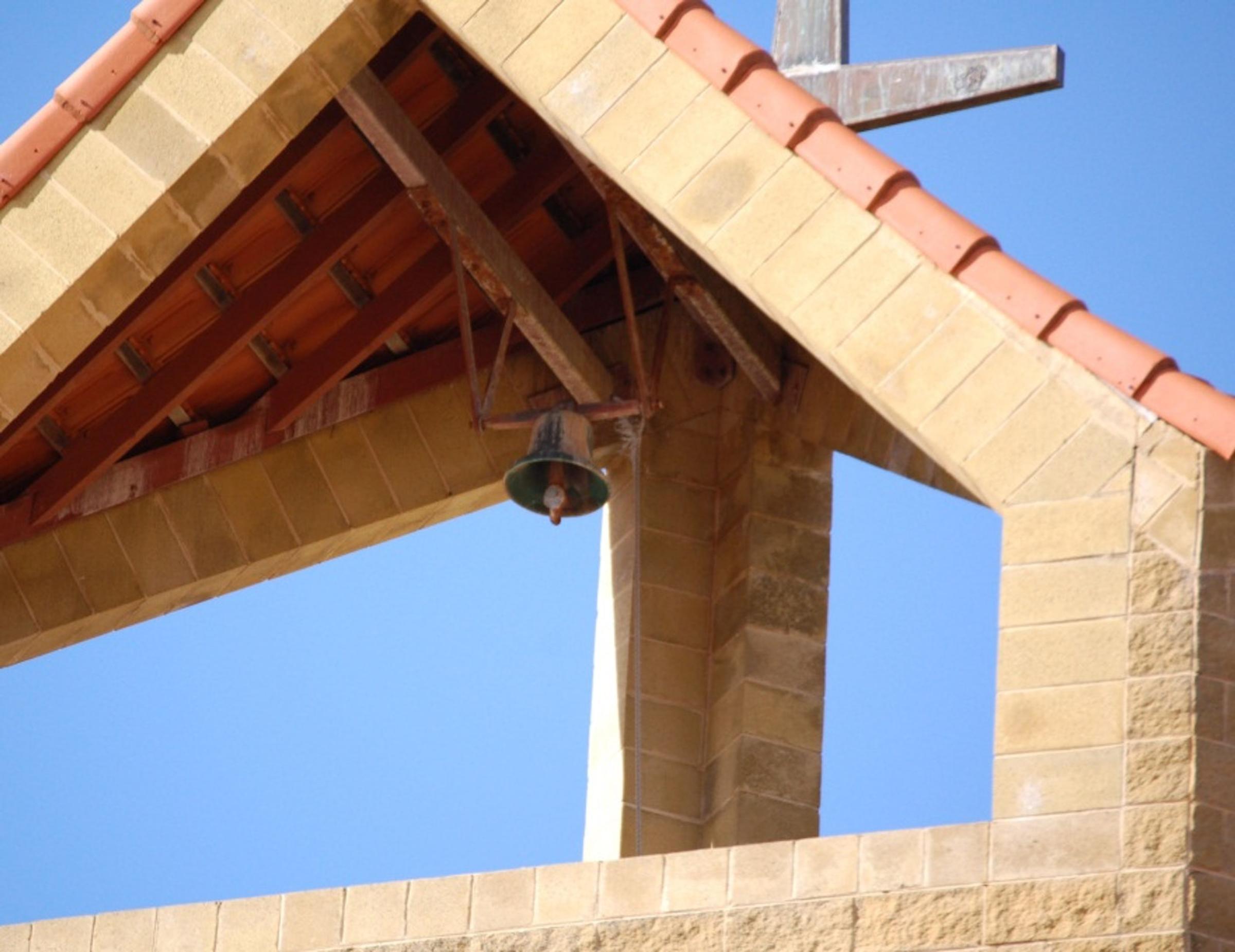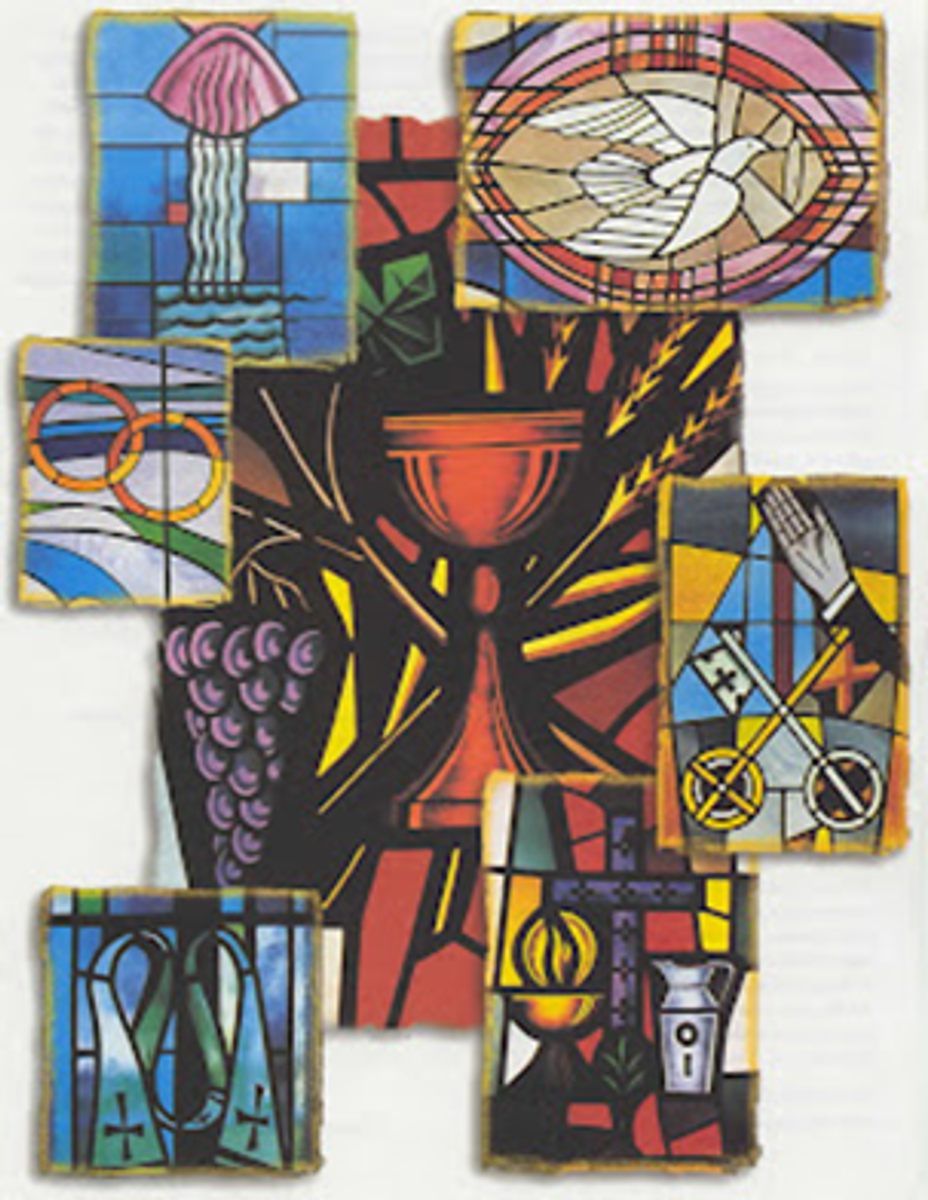Faith and Mission

Can Bluey teach us about Ignatian Spirituality?
Hands up to those of you who have watched an episode of Bluey? Maybe it would be easier to ask hands up those of you who have not seen an episode. Recently, I was enlightened that whilst Bluey is primarily aimed at children, it often incorporates themes and lessons that resonate with Ignatian spirituality.
Ignatian spirituality encourages individuals to recognise the sacred in everyday experiences. Bluey often portrays the joy and wonder of ordinary moments in family life, such as playing games, solving problems, and spending time together. Through these simple experiences, viewers can learn to appreciate the presence of God in the ordinary aspects of life.
Ignatian spirituality also emphasises the importance of being fully present and attentive to the present moment. In Bluey, characters often engage in activities with full attention and enthusiasm, whether it's playing games, exploring nature, or spending time with loved ones. This mindfulness and presence reflect Ignatian principles of living in the present moment and being open to encountering God in the here and now.
Central to Ignatian spirituality is the understanding of God's presence in relationships and community. Bluey highlights the importance of family bonds, friendship, and community through its portrayal of the interactions between characters. Viewers can learn about love, empathy, and the importance of supporting one another in times of joy and difficulty.
Recently, I read an article by Eric Clayton, a Communications Deputy Director for the Jesuit Conference in Canada. He highlighted what Bluey can teach us about times of spiritual desolation. I hope you enjoy the article and that next time you watch an episode of Bluey, you, too, can think about the links to our Ignatian Spirituality.
Janeen Murphy
Deputy Principal Faith and Mission
Community Mass
Exotic place names, which would stymie many adult readers, were fluently proclaimed from the Book of Acts, by Year 7 readers at Community Mass this morning. The ancient municipalities were home to ‘devout Jews’ (Acts 2:5) who had travelled to Jerusalem for the harvest festival, some 50 days after the Resurrection of Christ. It is while in Jerusalem that they witnessed the outpouring of the Holy Spirit and heard the Apostles ‘declaring the wonders of God in our own tongues!’ (Acts 5:11).
Pentecost brings the Easter season to a close – but not to an end! Pentecost is a celebration of the Holy Spirit‘s ongoing gifts to all people. Thank you to all Year 7 readers, choir members, participants and family members who brought their giftedness to our Eucharist this morning.
Next week, students in Year 10 will prepare the Friday liturgy. Everyone is welcome!
Community Mass summary:
- Fridays in Term time
- 8:00am start – 8:30am finish
- College Chapel
Congratulations
Congratulations to the Year 4 students who made their First Communion at Saint Thomas Apostle Parish in Claremont last Friday evening. Their names and photos will be published next week.
This weekend, on the Feast of Pentecost, a number of Year 6 students will be confirmed in various parishes. Let us keep them in our thoughts and prayers as they complete the Sacraments of Initiation.
Sacrament program information from some of our local parishes, including City Beach, Claremont, Cottesloe, Doubleview, North Beach and Subiaco, appears on the College website in the Parish Sacrament Programs section.
Further information:
- Your parish priest or Sacrament Coordinator
- The Archdiocesan website;
- Email Mary-Anne Lumley mary-anne.lumley@johnxxiii.edu.au 08 9383 0513.
Good News for the Feast of Pentecost
Recently I considered buying a Bose ‘sound wave’ speaker system. For a small box it gave the best sound reproduction I have ever heard. In comparison to the hi-fi I presently have, its bass notes are strong and true, which gives the music a sense of presence, a foundation upon which the treble rises and falls as the music dictates. This machine allows an exceptional clarity to the sound, so that the composer’s work can be properly heard.
In the Acts of the Apostles today we are told that the crowd who heard the earliest disciples of Jesus understood them in his or her own language. Now that’s clarity! It wasn’t so much the gift of tongues the earliest disciples received as much as their hearers received the gift of ears, of listening.
When it comes to listening in the Church today, some people mistake mono for stereo, uniformity for unity. At the first Pentecost, the earliest Christians had no such difficulty; they knew that speaking the same language was not as important as was careful listening to one another.
The early Church was a very complex and diverse community. Like today they had their struggles with one another. Within a few years of the first Pentecost, there were fights between Peter and Paul over Jewish and Gentile converts. There were people who died for the faith and others who betrayed them to the authorities. Some Christians thought they were for Paul or Apollos rather than for Jesus, and still others thought the end of the world was nigh. Through it all, however, the bass notes played: the life, death and resurrection of Jesus Christ.
The Second Vatican Council helped us recover the most ancient tradition in our faith, that in various, unexpected and inculturated ways the Word of God has been present in all peoples, in every culture. We now hold that whenever the Gospel has been proclaimed in a new land, it complements the best in that culture as well as correcting aspects of any culture which oppress, demean and diminish the women and men within it.
In this process, what is born between Christ and an individual culture is an inculturated faith, which takes as seriously as the early Church did the context in which our faith is proclaimed and lived.
Pentecost faith holds that while we build our faith on that of all the believers who have gone before us, we have the responsibility to listen to our contemporary culture and put it into conversation with the Gospel. That’s why courage is one of the Holy Spirit’s pre-eminent gifts. We are not allowed to retreat from the world but are sent out to enter into conversation with it, and hear in this dialogue the symphony God is composing here and now between the treble of our daily life over the continuing bass line of Christ’s life, death and resurrection.
Let’s pray that our celebration of Pentecost hones our ears as well as prepares our tongues to clearly receive and proclaim the Gospel of Christ in the market places of our own day and age.
© Richard Leonard SJ
The reflection for this Sunday’s Gospel is by Jesuit priest, Fr Richard Leonard. Fr Richard is author of Preaching to the Converted, Paulist Press, New York, 2006.



